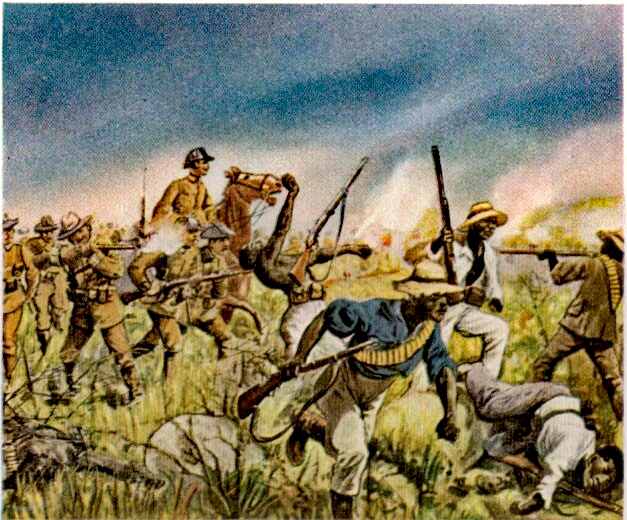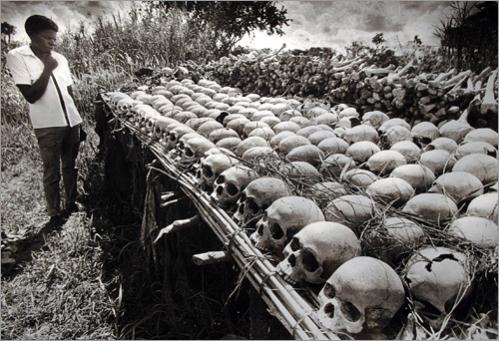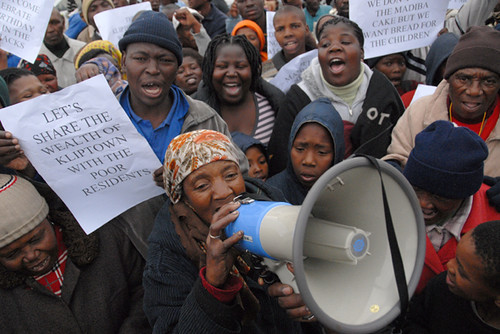Africa
Sudan: Mohamed Ibrahim Nugud's ideas will live on
The contradictions of Ronnie Kasrils: The leftist spy who came in from cold Pretoria

Ronnie Kasrils speaks out against Israel's apartheid policies, March 5
Video: Eight myths behind 'Kony 2012'
March 27, 2012 – A video by Green Left Week
Western Sahara: ‘No one will give us our freedom’

[Click HERE for more on the struggle of the people of Western Sahara.]
By Ryan Mallett-Outtrim and Laura Gilbie
March 11, 2012 -- Green Left Weekly/Links International Journal of Socialist Renewal -- After two decades of political deadlock, Africa’s oldest refugee population is losing faith in UN mandated peace negotiations.
“No one will give us our freedom — we must take it!,” Sahrawi journalist Embarka Elmehdi Said told Green Left Weekly. Said sees little hope for a peaceful resolution to the crisis that has gripped Western Sahara since its independence from Spain in the 1970s.
A child when her family fled the Moroccan invasion of Western Sahara in 1975, Said has spent most of her life in the Polisario run refugee camps on the Western Sahar-Algeria border.
Her two sons, aged 12 and three, have spent all their lives in the camps.
International solidarity helps keep the ‘Zimbabwe 6’ out of jail
Johannesburg protest in support of the "Zimbabwe 6", March 20, 2012.
By Lisa Macdonald
March 22, 2012 – Links International Journal of Socialist Renewal/Green Left Weekly -- Six Zimbabwean activists who were convicted for watching a video of the Arab Spring in February 2011 won a partial victory on March 21 when they were given suspended jail sentences of two years, ordered to each do 420 hours of community service and pay a fine of US$500 each.
The six activists were convicted in the Harare Magistrates Court on March 19 of trumped-up charges of “conspiracy to commit public violence”. They had faced up to 10 years’ imprisonment, a sentence demanded by the state prosecutor, Edmore Nyazamba.

German troops kill the Herero, circa 1904. Painting by Richard Knötel (1857-1914).
Africa's Pambazuka News has devoted an entire issue to Germany's 1904-08 genocide of the Nama and Herero peoples (in Namibia). Below Links International Journal of Socialist Renewal posts the editorial and an article that details this shameful imperialist slaughter and modern Germany's refusal to adequately acknowledge and compensate Namibia for its crimes. Read the full issue HERE. Become a Friend of Pambazuka.]
* * *
By Eric Van Grasdorff, Nicolai Röschert and Firoze Manji
March 20, 2012 -- Pambazuka News -- On March 22, 2012, Germany's parliament will debate a motion to acknowledge its brutal 1904-08 genocide of the Nama and Herero peoples. Germany’s refusal thus far, and its less than even ‘diplomatic’ treatment in 2011 of the Namibian delegation at the first-ever return of the mortal remains of genocide victims, demands a reassessment of suppressed colonial histories and racism.
Zimbabwe: Activists found 'guilty' on trumped-up charges -- protests keep them out of jail!

Munyaradzi Gwisai, a political activist and former member of parliament, left court in Harare on March 19 after
Uganda: How the West brought Idi Amin to power

Some of the victims of the Idi Amin regime recovered by local farmers in the fertile fields of the Luwero Triangle region
Zimbabwe activists in danger of unlawful prison sentences – Solidarity needed!
Supporters of the activists facing unlawful imprisonment.
The following statement was issued by the South African Municipal Workers Union (SAMWU). Readers of Links International Journal of Socialist Renewal are urged to phone, email or send protest messages demanding the release of the six Zimbabwe activists to the Zimbabwe embassy or consulate in their countries. Solidarity actions are being organised in South Africa. Please send copies of protest messages sent to socialismfrombelow@gmail.com (copy to ashley_fataar@yahoo.co.uk and shanthabloemen@gmail.com).
Text messages can be sent to:
Home affairs (police) minister Kembo Mohadi: +263 712 605 424 (mobile)
State security (C.I.O.) minister Didymus Mutasa: +263 0712 200 532 (mobile)
Police spokesperson Wayne Bvudzijena +263 712 801 172
COSATU general strike shakes South Africa

By Ashley Fataar, Cape Town
March 12, 2012 – Links International Journal of Socialist Renewal -- March 7 saw South Africa’s largest protest in several years when more than 200,000 workers took to the streets in 32 towns and cities across the country. More than 1.5 million workers stopped work.
The strike – called by the Congress of South African Trade Unions (COSATU) to protest against the growing role of labour brokers and the introduction of road tolls -- was prompted by worsening poverty and working conditions in South Africa. There has been a steady decline in the wage share of national income, down from 56% in 1996 to less than 47% today.
After the Durban climate talks: State and market climate failures amplified by civil society failure

By Patrick Bond, Durban
February 28, 2012 -- Links International Journal of Socialist Renewal -- In 2007, former World Bank chief economist Nick Stern termed climate change the worst "market failure" in history – since those who pollute with greenhouse gases are not charged, and since they threaten future generations and vast swathes of natural life – and at that moment, even the 1991 ravings of another former World Bank chief economist, Larry Summers, made sense.
"I think the economic logic behind dumping a load of toxic waste in the lowest-wage country is impeccable and we should face up that", according to a memo with Summers’ signature, although actually Summers was a mere plagiarist of Harvard economist Lant Pritchett’s genius, insiders allege.
'Uneven and combined Marxism' within South Africa’s urban social movements

A protest by Kliptown Concerned Residents and the Anti Privatisation Forum.